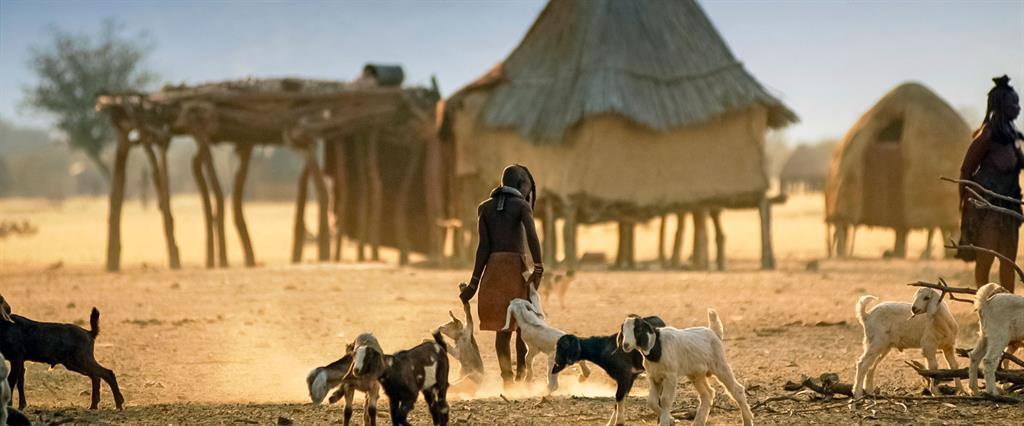EIF working to become self-sustainable
ELLANIE SMIT
WINDHOEK
Despite undeniable achievements in its eight years of operation, the Environmental Investment Fund (EIF) of Namibia remains challenged to meet the financial demands of environmental projects.
More than N$200 million worth of grant applications were received, with only 5% being funded.
In its first newsletter since the coronavirus outbreak, the EIF said it will have to diversify its revenue streams to ensure more local funding and sustainability.
The fund's head of communication and corporate services, Lot Ndamanomhata, said securing a sustained funding base remains one of its biggest challenges, and it continues to devise innovative ways of expanding its resource base.
238 000 people benefitted
Ndamanomhata said during the past eight years, the EIF leveraged the N$105 million received from treasury to successfully mobilise more than N$1.2 billion for climate change investment in Namibia.
It is estimated that about 238 000 people have benefitted and continue to benefit
From the different projects.
However, Ndamanomhata said despite these achievements, it remains challenged to meet the financial demands for environmental projects.
According to him, the board has prioritised the implementation of environmental levies as a measure to close the financial gap.
Environmental taxes
“The board managed to secure an arrangement with the finance ministry where the fund will receive 30% of all environmental taxes on incandescent bulbs, tyres and carbon emissions.
“Furthermore, cabinet approved a 100% allocation of all environmental taxes on plastic bags to the fund. To date, the fund has received N$29 million worth of environmental taxes from the finance ministry,” he said.
Meanwhile, Pandeni Kapia, a certified expert in climate and renewable energy finance, working as financial and risk analyst for the EIF, said the coronavirus pandemic has changed the world and the fund cannot operate as usual.
“An adaptive management approach that is flexible is being pursued by the fund, coupled with an upgrade in our work environment with regard to health and safety issues.”
He said the pandemic has highlighted the importance of having a secured revenue stream and the fund is working towards being 100% self-sustainable.
WINDHOEK
Despite undeniable achievements in its eight years of operation, the Environmental Investment Fund (EIF) of Namibia remains challenged to meet the financial demands of environmental projects.
More than N$200 million worth of grant applications were received, with only 5% being funded.
In its first newsletter since the coronavirus outbreak, the EIF said it will have to diversify its revenue streams to ensure more local funding and sustainability.
The fund's head of communication and corporate services, Lot Ndamanomhata, said securing a sustained funding base remains one of its biggest challenges, and it continues to devise innovative ways of expanding its resource base.
238 000 people benefitted
Ndamanomhata said during the past eight years, the EIF leveraged the N$105 million received from treasury to successfully mobilise more than N$1.2 billion for climate change investment in Namibia.
It is estimated that about 238 000 people have benefitted and continue to benefit
From the different projects.
However, Ndamanomhata said despite these achievements, it remains challenged to meet the financial demands for environmental projects.
According to him, the board has prioritised the implementation of environmental levies as a measure to close the financial gap.
Environmental taxes
“The board managed to secure an arrangement with the finance ministry where the fund will receive 30% of all environmental taxes on incandescent bulbs, tyres and carbon emissions.
“Furthermore, cabinet approved a 100% allocation of all environmental taxes on plastic bags to the fund. To date, the fund has received N$29 million worth of environmental taxes from the finance ministry,” he said.
Meanwhile, Pandeni Kapia, a certified expert in climate and renewable energy finance, working as financial and risk analyst for the EIF, said the coronavirus pandemic has changed the world and the fund cannot operate as usual.
“An adaptive management approach that is flexible is being pursued by the fund, coupled with an upgrade in our work environment with regard to health and safety issues.”
He said the pandemic has highlighted the importance of having a secured revenue stream and the fund is working towards being 100% self-sustainable.




Comments
Namibian Sun
No comments have been left on this article